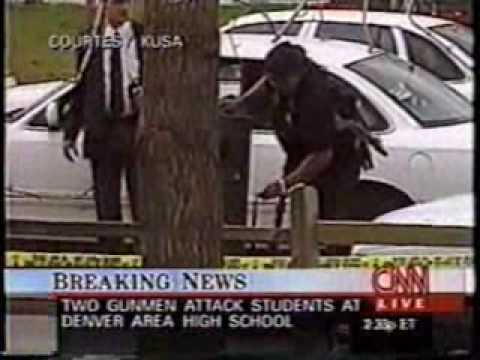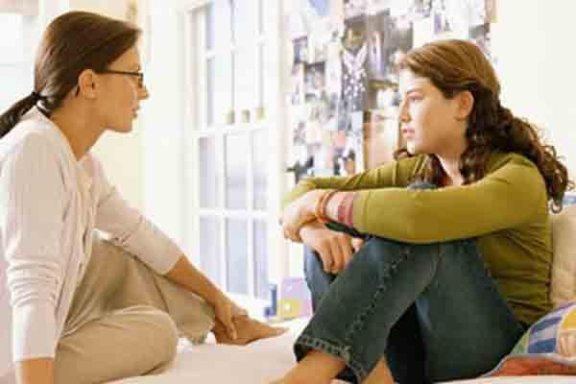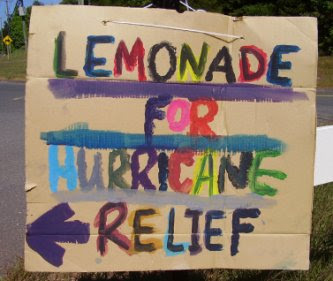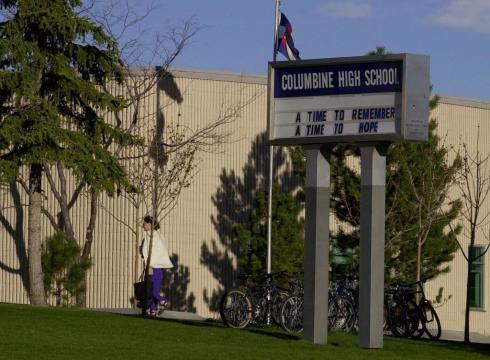It’s been 13 years since our family’s world was rocked by the tragic loss at Columbine High School. Our son, Jacob, was a freshman there and our other son was a junior at another local high school, one of our daughters was in third grade and our youngest Schrecklet was only three.
There is much to say about the role media plays in tragic events but even more to say about parenting. Neither discussion will have an outcome that everyone agrees on. I was honored to be asked to guest facilitate a Twitter-chat this coming Thursday for #DadChat and thought I would start by sharing some thoughts here beforehand.
- You have to be the filter for your kids. Today we not only have 987 channels of television to watch, but we have Facebook, Twitter, YouTube videos and more bringing us tragic news from around the world 24/7. We need to remember there is an off button and during times of national tragedies, we need to use it more often. Just because a news station has more to say about the topic, doesn’t mean we have to listen. Chances are good that you have not been hired to solve the case, so you do not need every shred of detailed information. Teach your kids that there are other things going on that are good and not pertaining to the tragedy.
 When Katie Couric was bringing cake and interviewing our kids and neighbors, it was just bizarre-world and it was extra hard to block out the chaos. News trucks were camped outside our homes, schools and neighborhoods for weeks. The media representatives were at our door and calling to try and buy our son’s year book. We didn’t have Twitter and Facebook so at least our nine-year-old wasn’t coming to ask what #Trenchcoats and #JocksAreBullies meant, but today that can happen. You must work hard to be that filter for them.
When Katie Couric was bringing cake and interviewing our kids and neighbors, it was just bizarre-world and it was extra hard to block out the chaos. News trucks were camped outside our homes, schools and neighborhoods for weeks. The media representatives were at our door and calling to try and buy our son’s year book. We didn’t have Twitter and Facebook so at least our nine-year-old wasn’t coming to ask what #Trenchcoats and #JocksAreBullies meant, but today that can happen. You must work hard to be that filter for them. - You have to talk honestly about tragic events, death and hard issues, but always at an age appropriate level. I once overheard a young child ask her mother “What happened?” when the adults around were discussing a hit and run accident and the death of a 6 year old. The mother said, “They are just talking about a little girl who is sleeping for a long time.” I wanted to butt in with “No wonder kids are afraid of naps and going to sleep at night!” That could have been an important and tender teachable moment. Why is death so taboo in our culture? We don’t celebrate getting old and we don’t teach our kids that one day we will leave these bodies behind. We discuss the celebration of this part of our life and that we have the assurance of meeting again in heaven.
 With fewer families living in the same state, funerals can even be seen as a chore that one or both of the parents have to “deal with” and the kids are left behind at home. Our faith has played a huge role in making this a much more natural discussion at an early age, and I think we all need to look at how we address the tough topics that life will surely bring our way.
With fewer families living in the same state, funerals can even be seen as a chore that one or both of the parents have to “deal with” and the kids are left behind at home. Our faith has played a huge role in making this a much more natural discussion at an early age, and I think we all need to look at how we address the tough topics that life will surely bring our way. - Be prepared to answer your kids’ questions but first clarify the question! We’ve all heard the joke about 5-year-old Johnny asking “Where did I come from?” After a 20 minute sex-education talk, Johnny says, “Oh, Carl said he was from Cleveland!” When your 5-year-old comes home and asks “What happened at the Batman movie?” before going into great detail of how many people were killed and how many rounds of ammunition were purchased online, perhaps you should start with a question like, “What did you hear?” Start there and use age-appropriate information to inform, show concern and comfort.
- Get kids involved in positive outcomes. Whether it is collecting clothing for fire victims, or bringing a cake to the bake sale that is raising money for the family of the principal who just died of cancer, getting your kids involved in moving forward and focusing on ways to help will teach them that when people are hurting and in need, we don’t sit back and obsess about the problem, we get up and help. Don’t let your kids see you become so absorbed by the court case coverage or hear you question how the families will ever survive. Focus on doing good in the face of tragedy. We brought meals to friends who lost their children at Columbine and helped raise funds for the memorial that was being built.
 Because one of the gunmen, Eric Harris, lived right behind us, our family helped to start a neighborhood program called “We’re Involved Neighbors Now (WINN)” with the help of the local police department and all of our neighbors. It is not okay to live in a neighborhood for 10 years and know nothing about the people on your street. Reach out to the lonely, say hello to that awkward teen down the street, ask how you can help a sick neighbor. Go beyond the picket fence.
Because one of the gunmen, Eric Harris, lived right behind us, our family helped to start a neighborhood program called “We’re Involved Neighbors Now (WINN)” with the help of the local police department and all of our neighbors. It is not okay to live in a neighborhood for 10 years and know nothing about the people on your street. Reach out to the lonely, say hello to that awkward teen down the street, ask how you can help a sick neighbor. Go beyond the picket fence. - Hug your loved one’s and tell them how important they are to you, more often. If there is one thing we have all learned is these tragedies can happen anywhere. Whether a school campus, a church, or a movie theater, tragedy will strike where it chooses. We want our kids to know that sadly there are bad people in the world but the good news is, there are more good people than bad.
I would love for you to share your thoughts here, but would be thrilled to also have you join us Thursday at 6pm (PT)/8 central/9 (ET) on Twitter using the hashtag #Dadchat. Check out all of the great parenting info on Bruce Sallan’s site!
Connect with me on Twitter as well!

July 23, 2012 at 10:29 pm
What a marvelous post, Gina…and so valuable for our #DadChat together on Thursday:
http://www.brucesallan.com/2012/07/23/tragedy-media-kids-dadchat-ginaschreck/
My older brother died when I was 5. My parents did not know what to do or what to say to me so they chose to leave me in the dark. I was left at my grandparents house when the funeral took place. I lived with a DREADFUL fear of death for decades after. They were advised to do that so I do not blame them in the least.
My boys have both experienced death in our family, from “losing” 3 beloved dogs to experiencing both my parent’s deaths. My older son held my mother’s hand as she passed away. It was a beautiful moment. Sad, of course, but loving at the same time.
ALL of your suggestions are so wise. TY Gina for sharing them and for co-hosting #DadChat this Thursday. It’s important and YOU are just the right person for the job! Lucky me, Lucky #DadChat, Lucky us!
July 25, 2012 at 3:51 am
Bruce it is incredibly tragic about losing your brother when you were so young, and sad that your parents didn’t have the resources available to help you, and them, through such tragedy. It is true that pets help teach life, love, and loss.
I think if parents were more comfortable talking about death and dying, we could help our kids process so much of life’s events. I often wonder why other cultures handle death so differently and so respectfully.
Looking forward to discussing this more with you on Thursday.
July 26, 2012 at 2:09 pm
TY Gina. It certainly put me on a path of exploration and introspection!
July 26, 2012 at 11:55 pm
Hi Gina,
Thank you for sharing this piece. Your advice is wonderful and very much on target. Parents often feel so conflicted about what to say and do after a tragedy; its overwhelming. If more parents had access to the knowledge you have shared, it would make a huge difference. I will certainly share this with others.
Looking forward to #DadChat tonight.
July 26, 2012 at 11:57 pm
Thank you so much Jennifer! Parenting is one big experiment — which is why I say you have to keep having kids until you get it right. I have FOUR. :))